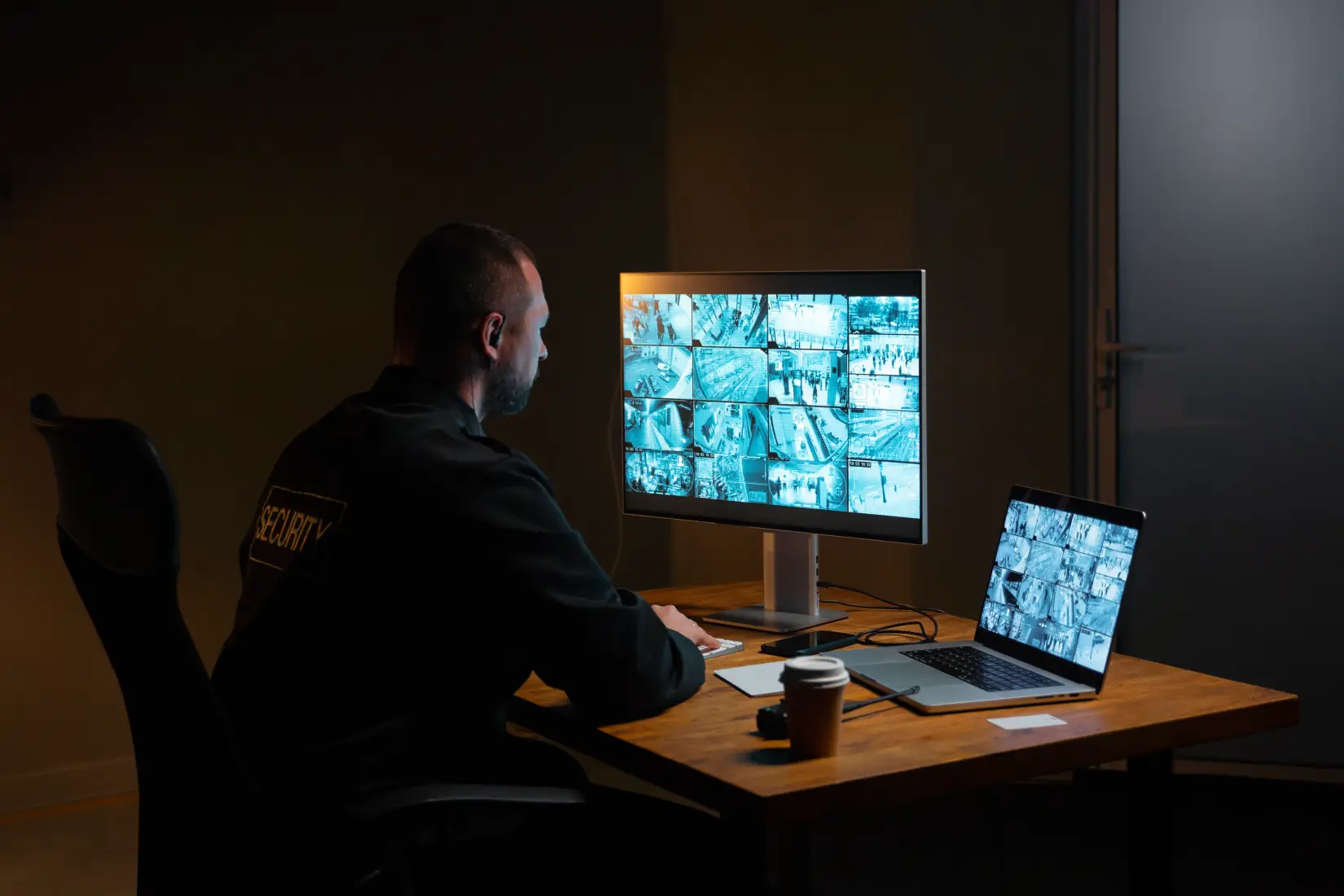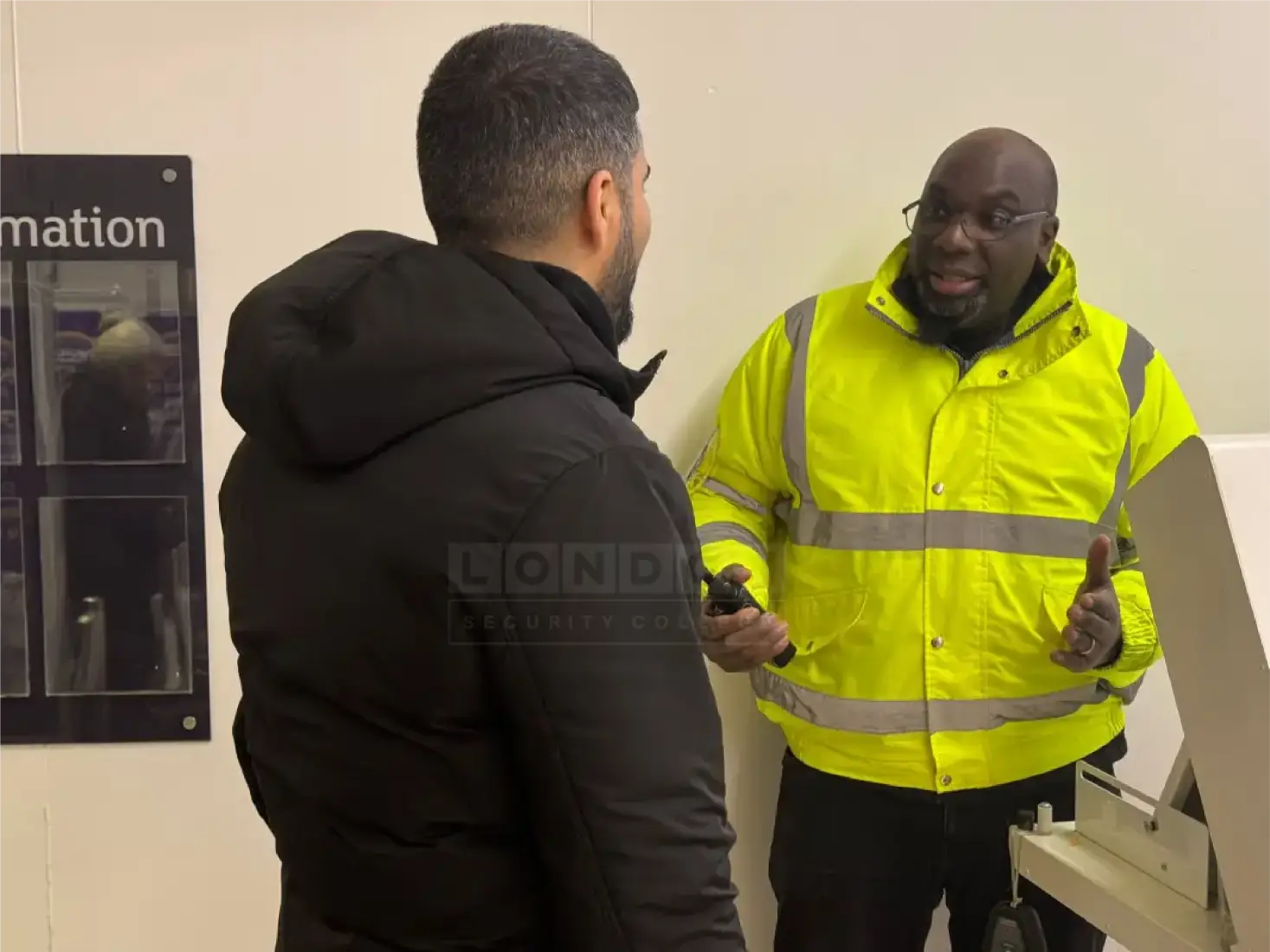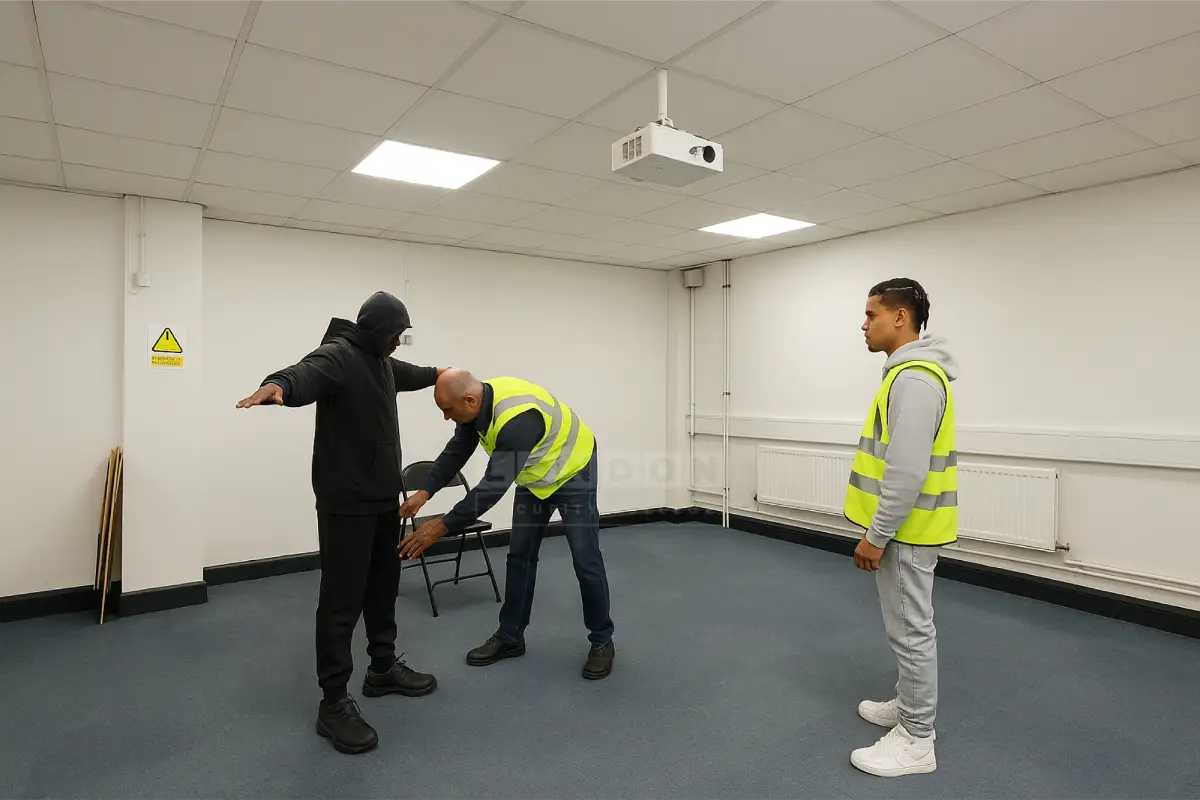
How Security Control Rooms Play a Critical Role in Responding to Terrorist Incidents
By London Security College Is Your Licence Near to Expire? SIA Refresher Training + First
Home » How to Become a Security Guard in the UK
SIA Refresher Training + First Aid– Keep Your Licence Active! Only £199
If you’re considering becoming a security guard in the UK, you’re not alone. The security industry is growing, and with businesses, supermarkets, corporate offices, construction sites, and entertainment venues all needing protection, there’s plenty of demand for trained security professionals.
But most people don’t realise that when they say they want to be a security guard, they mean a door supervisor.
Why? Because a door supervisor can do everything a security guard can do—and more. If you get a Security Guard Licence, you’re restricted to shops, office buildings, and construction sites. But with a Door Supervisor Licence, you can work in all those places, plus pubs, nightclubs, bars, and events.
That’s why most security professionals choose the Door Supervisor Licence—it gives you more job opportunities, flexibility, and often better pay.
If you’re serious about working in security, keep reading.
Security Guard Licence
If you want more options, go for the Door Supervisor Licence. It doesn’t mean you have to work in nightclubs—you can still take standard security jobs, but you’ll have more choices.
To work as a security officer, you must:
Without an SIA Licence, you cannot legally work in security unless you’re directly employed by a company (which is rare).
Before applying for an SIA Licence, you must complete a government-approved security training course.
Security Guarding Course Includes:
Door Supervisor Course (Recommended) Includes:
If you’re planning to work in bars, clubs, or anywhere alcohol is served, this physical intervention training is essential.
Most courses take four to six days and are available in-person or online with in-person assessments.
Once you’ve completed your training, you can apply for your SIA Licence online through the official SIA website.
You’ll need to provide:
It’s a straightforward process, but delays can happen, so apply as soon as you finish your course.
Once your SIA Licence is approved, you can apply for security jobs.
The more experience you have, the better the pay.
Once you’ve built some experience, you can move into higher-paid or specialist roles.
Career Progression in Security
Many security guards move into CCTV monitoring because it pays well and involves less physical work.
No. It is illegal to work in security without an SIA Licence unless you are employed directly by a company, not a security firm.
It depends on the type of offence and how long ago it happened. The SIA reviews applications on a case-by-case basis.
Security jobs often involve shift work, including:
Many security officers work 8-12 hour shifts, depending on the job.
Security is an excellent choice if you’re looking for a stable job with plenty of opportunities. You can work in retail, corporate settings, events, and hospitality; there’s always room for career progression.

By London Security College Is Your Licence Near to Expire? SIA Refresher Training + First

By London Security College Is Your Licence Near to Expire? SIA Refresher Training + First

By London Security College Is Your Licence Near to Expire? SIA Refresher Training + First

By London Security College Is Your Licence Near to Expire? SIA Refresher Training + First


Fill in the form below